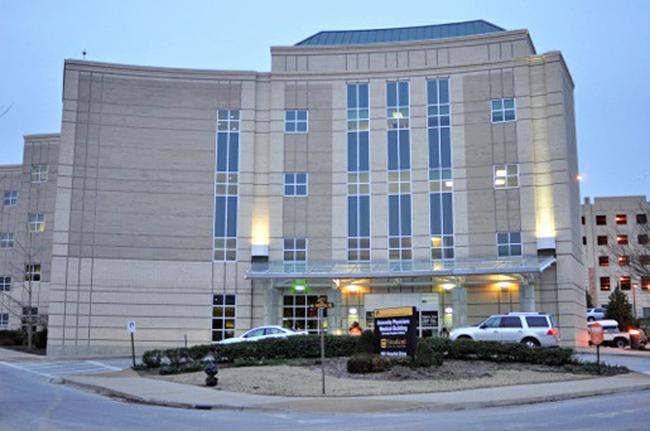
The number of mumps cases among students has risen to 128, the Student Health Center confirmed in a news release Wednesday.
The Student Health Center acknowledged cases of the disease Nov. 4, when the center sent out a university-wide email confirming eight students were diagnosed. Each of those students, and everyone diagnosed since, has received the measles, mumps and rubella vaccine to protect against the illness.
MU spokesman Christian Basi said fewer than 50 students on campus — less than half of one percent of the student population — are exempt from the vaccination.
But Dr. Michael Cooperstock, medical director of MU Health Care’s Infection Control Department, said that because the two MMR vaccines students are required to get are only about 88 percent effective, the spread of such infectious diseases is not unlikely.
“There will be quite a few people who will still be susceptible even though they have had both of the vaccines they are supposed to have,” Cooperstock said.
Basi said the university is encouraging student organizations to postpone or cancel social events for the remaining three weeks of the semester. Because of the virus, the university canceled the “late-night breakfast” event it had scheduled during finals week.
However, Basi said the university has not considered canceling any classes or tests because of the mumps. He said students who are diagnosed at the Student Health Center will receive paperwork they can give to their professors if they have to miss class.
Mumps, though less common, is very similar to other upper-respiratory viruses like influenza.
“The initial symptoms of mumps are indistinguishable from an ordinary respiratory tract infection — fever, achiness, that sort of thing,” Cooperstock said. “Only after several days does it become apparent that it’s mumps, because that is when the salivary glands begin to swell up and get sore.”
Cooperstock also said that since there is no specific antiviral treatment for mumps, the cure is much like it would be for the flu: aspirin and sleep.
Mumps is about as infectious as the flu. Part of what makes the disease spread is that a person may contract the virus — and may be contagious — up to two weeks before the onset of symptoms. Cooperstock said this is the case with many infectious diseases.
College campuses are also a prime location for viral outbreaks because many people live in close proximity and are using the same facilities.
The longer incubation period can cause the spread of mumps to be slow. Cooperstock said the cases at MU are spreading at the rate he would expect them to in a campus population, and there is no good way of telling how long it will last.
“We were hoping the Thanksgiving break might make a break in the action, but that’s not necessarily true,” Cooperstock said. “So we might just have to wait and see. It’s hard to predict.”
Mumps outbreaks on campuses are also not unheard of. According to the Centers for Disease Control and Prevention, several hundred students contracted the virus at colleges in Illinois and Iowa last academic year, and in 2014, a case in Ohio spread to over 400 students.
The virus was much more common before the MMR vaccines were developed. The number of cases in the U.S. dropped by 99 percent after the mumps vaccine program began in 1967, according to the CDC. Now, the number of annual cases fluctuates between 200 and 2,000 cases in the U.S. per year.
Cooperstock advises students who have contracted mumps to avoid contact with others to not spread the virus. He also said students should wash their hands often and cough and sneeze into their sleeves.
For students whose roommates may have contracted the disease, he said to sleep in a different room if possible.
However, he also said that if the student is vaccinated, they will likely be protected against mumps.
“If they have had both of those vaccines there is still an 85 percent chance they are going to be protected,” he said.
If you have symptoms, call the Student Health Center at 573-882-7481 or contact your health care provider.
_Edited by Emily Gallion | [email protected]_